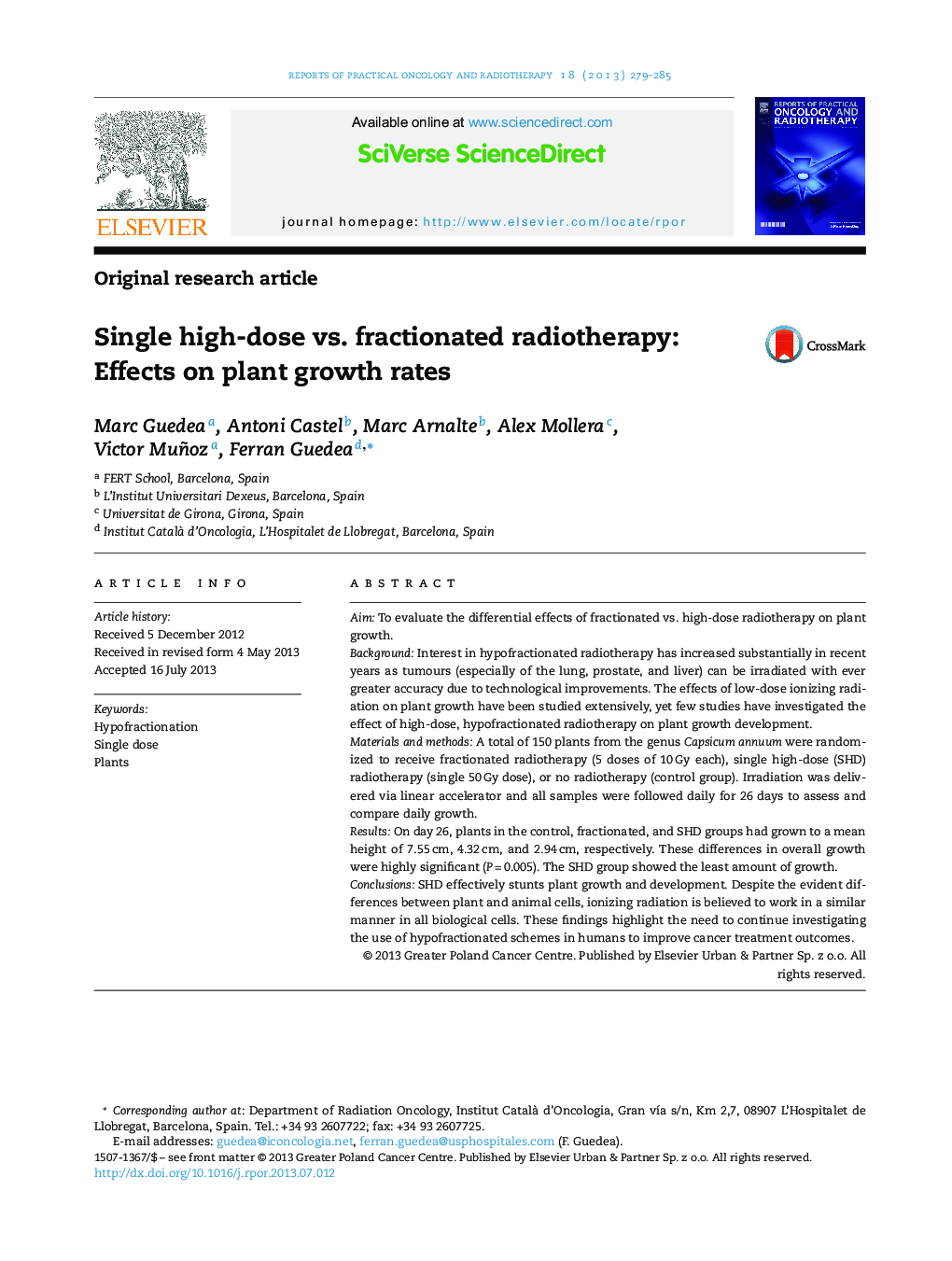| Article ID | Journal | Published Year | Pages | File Type |
|---|---|---|---|---|
| 1857015 | Reports of Practical Oncology & Radiotherapy | 2013 | 7 Pages |
AimTo evaluate the differential effects of fractionated vs. high-dose radiotherapy on plant growth.BackgroundInterest in hypofractionated radiotherapy has increased substantially in recent years as tumours (especially of the lung, prostate, and liver) can be irradiated with ever greater accuracy due to technological improvements. The effects of low-dose ionizing radiation on plant growth have been studied extensively, yet few studies have investigated the effect of high-dose, hypofractionated radiotherapy on plant growth development.Materials and methodsA total of 150 plants from the genus Capsicum annuum were randomized to receive fractionated radiotherapy (5 doses of 10 Gy each), single high-dose (SHD) radiotherapy (single 50 Gy dose), or no radiotherapy (control group). Irradiation was delivered via linear accelerator and all samples were followed daily for 26 days to assess and compare daily growth.ResultsOn day 26, plants in the control, fractionated, and SHD groups had grown to a mean height of 7.55 cm, 4.32 cm, and 2.94 cm, respectively. These differences in overall growth were highly significant (P = 0.005). The SHD group showed the least amount of growth.ConclusionsSHD effectively stunts plant growth and development. Despite the evident differences between plant and animal cells, ionizing radiation is believed to work in a similar manner in all biological cells. These findings highlight the need to continue investigating the use of hypofractionated schemes in humans to improve cancer treatment outcomes.
